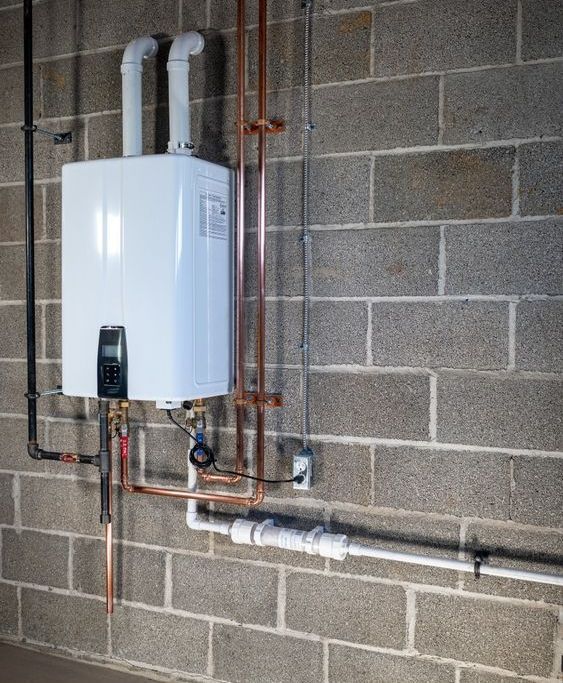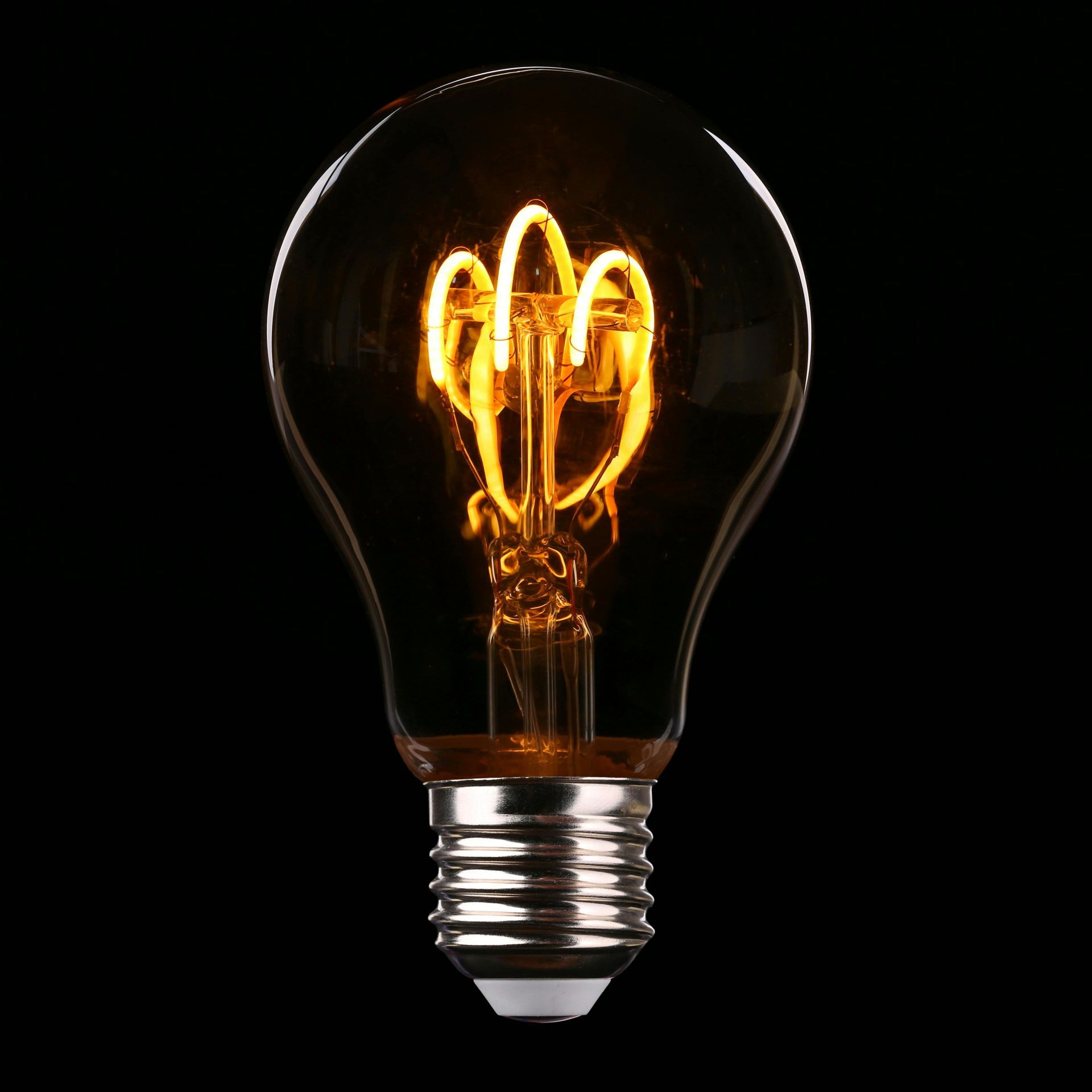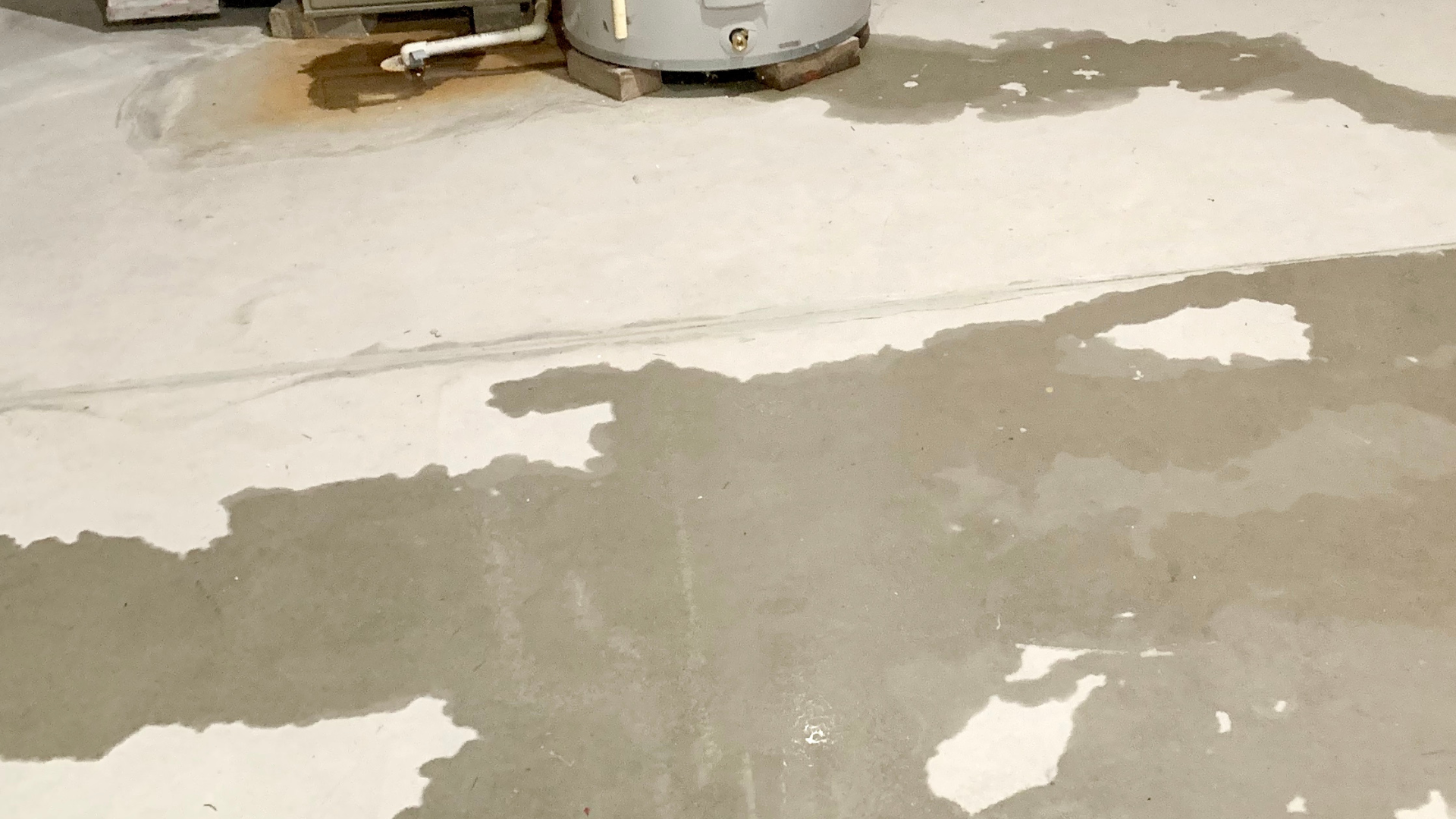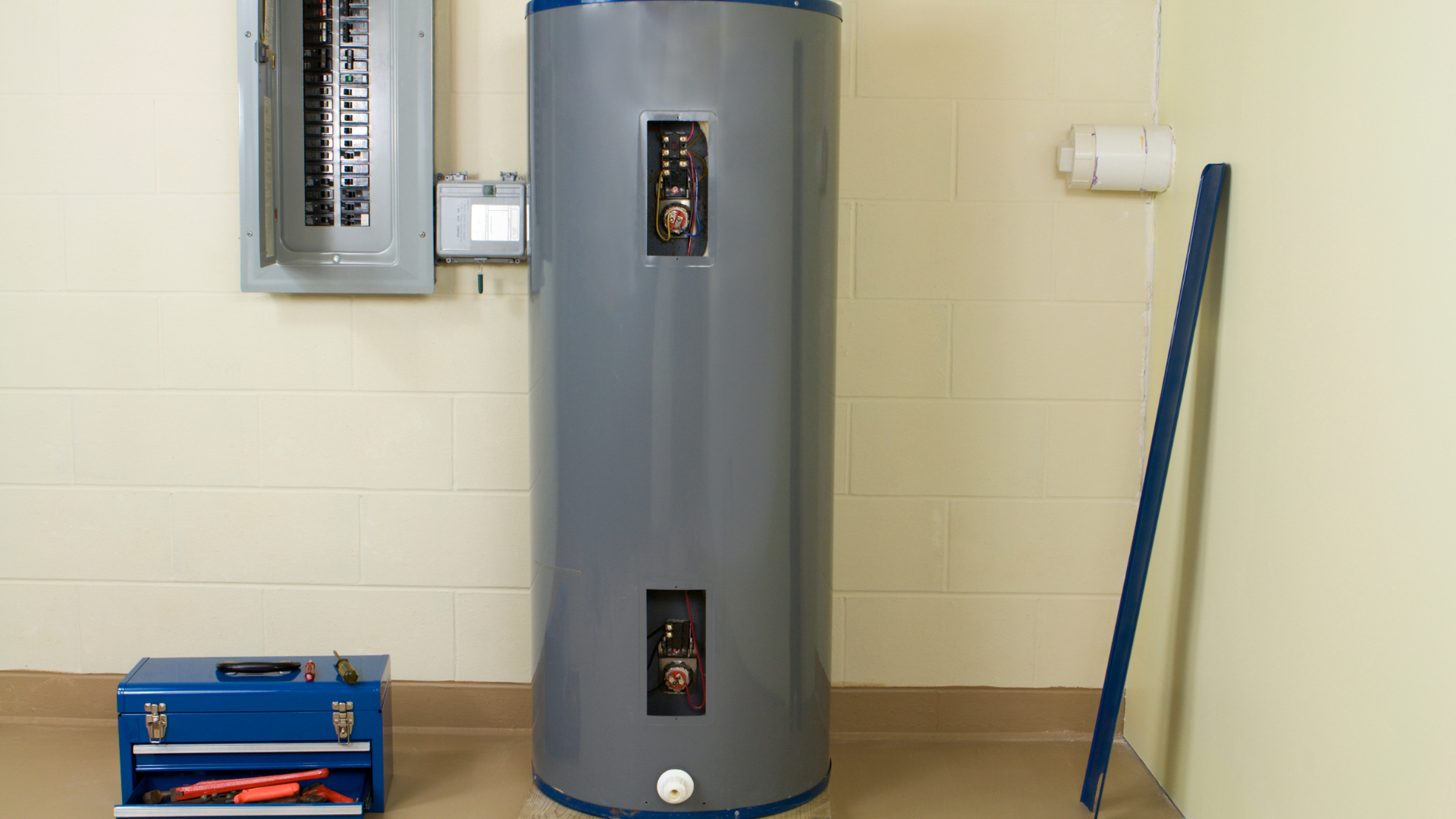All About Tankless Water Heaters
The On-Demand Advantage: Is a Tankless Water Heater Right for Your Home?

Tired of running out of hot water mid-shower or waiting ages for the dishwasher to fill? A tankless water heater, also known as an on-demand water heater, might be the perfect solution for your home. Unlike traditional tank-style heaters that store and constantly heat water, tankless units provide hot water only when you need it. This innovative approach comes with a unique set of benefits and drawbacks, as well as specific cost considerations for buying, installing, and maintaining one.
How a Tankless Water Heater Works
Imagine a powerful, compact device that springs to life the moment you turn on a hot water faucet. That's essentially how a tankless water heater operates. When hot water is called for, cold water flows into the unit, where a highly efficient gas burner or electric element rapidly heats it as it passes through a heat exchanger. This "on-demand" heating eliminates the need for a bulky storage tank and the standby energy losses associated with keeping a large volume of water constantly hot.
Advantages of Tankless Water Heaters
- Endless Hot Water: This is arguably the biggest perk. As long as the unit is properly sized for your home's needs, you'll never run out of hot water, even if multiple showers are running or appliances are operating simultaneously.
- Energy Efficiency & Lower Bills: Since tankless heaters only heat water when it's needed, they avoid the "standby heat loss" that occurs with traditional tanks. This can lead to significant energy savings, often 24% to 34% more efficient for homes with moderate hot water use, and even 8% to 14% more efficient for high-usage homes. Over time, these savings can offset the higher initial cost.
- Space-Saving Design: Tankless units are compact, often about the size of a briefcase, and can be wall-mounted. This frees up valuable floor space in your basement, utility closet, or garage that a bulky tank water heater would typically occupy.
- Longer Lifespan: With proper maintenance, tankless water heaters typically last 15 to 20 years or more, sometimes double the lifespan of conventional tank heaters (10-15 years). Many parts are also easily replaceable, further extending their service life.
- Reduced Risk of Leaks: Without a large storage tank, the risk of a catastrophic tank rupture and subsequent water damage is virtually eliminated.
- Cleaner Water: Since water is heated on demand, it doesn't sit in a tank collecting rust or sediment, potentially leading to cleaner hot water.
Disadvantages of Tankless Water Heaters
- Higher Upfront Cost: This is the most significant hurdle for many homeowners. Tankless units themselves are more expensive, and installation can involve costly upgrades to gas lines, electrical wiring, or venting, particularly if you're switching from a traditional tank.
- Flow Rate Limitations: While they provide endless hot water, tankless heaters have a maximum flow rate (gallons per minute, GPM). If too many hot water fixtures are used simultaneously, the unit might struggle to keep up, potentially leading to a slight drop in water temperature or flow. For large households with high simultaneous demand, multiple units or a larger GPM model may be needed.
- Initial Delay for Hot Water: Because water isn't pre-heated and stored, there can be a slight delay (a few seconds) for hot water to reach the faucet, especially if the unit is far from the tap.
- Requires Venting (Gas Models): Gas tankless water heaters require proper ventilation to exhaust combustion byproducts, which can add to installation complexity and cost.
- Maintenance Requirements (Descaling): While generally durable, tankless units, especially in areas with hard water, require annual flushing and descaling to prevent mineral buildup in the heat exchanger. Neglecting this can lead to reduced efficiency and costly damage.
- Electricity Dependency: Even gas tankless units require electricity to operate their ignitors and control panels. A power outage means no hot water unless you have a backup power source.
Cost Expectations
The total cost of a tankless water heater system includes the unit itself, installation labor, and ongoing maintenance. Prices vary widely based on fuel type (gas or electric), capacity (GPM), brand, and the complexity of installation.
1. Buying and Installation Costs:
- Unit Cost: Expect to pay anywhere from $1,000 to $4,000+ for the tankless unit itself. Gas models typically offer higher flow rates and tend to be more expensive than electric models.
- Installation Cost: This is where costs can fluctuate significantly. Typical installation ranges from $1,400 to $3,000, but can go higher if major upgrades are needed. Total installed cost usually falls between $2,400 and $7,000+. Factors influencing installation costs include:
- Fuel Type Conversion: Switching from electric to gas, or vice-versa, can be very expensive as it may require new gas lines or significant electrical panel upgrades.
- Venting Requirements: Gas units need specific venting, which might involve new piping through walls or the roof.
- Location: Ease of access to plumbing, gas, and electrical lines affects labor time.
- Old Water Heater Removal: Hauling away your old tank adds a small fee.
2. Maintenance Costs:
Regular maintenance is essential for maximizing the lifespan and efficiency of your tankless water heater.
- Annual Flushing/Descaling: This is the most critical task. Minerals in water can build up in the heat exchanger, reducing efficiency and potentially damaging the unit. A professional flush and descaling typically costs $150 to $450 annually. While DIY kits exist (around $100-$300), professional service ensures proper cleaning and inspection.
- Filter Cleaning/Replacement: Air and water inlet filters need to be cleaned or replaced periodically.
- General Inspection: An annual check by a qualified technician can identify potential issues early, preventing more expensive repairs down the line.
- Total Annual Maintenance: Budget for $150 to $450+ for professional annual maintenance.
3. Lifespan Expectations:
With proper annual maintenance, a tankless water heater can last 15 to 20 years or more, significantly outlasting conventional tank water heaters (typically 10-15 years). This longer lifespan, combined with energy savings, contributes to the overall value proposition of tankless systems.
Is a Tankless Water Heater Worth It for You?
While the initial investment for a tankless water heater is higher, the long-term savings on energy bills, extended lifespan, and the convenience of endless hot water often make them a worthwhile investment. They are particularly well-suited for:
- Homeowners who want to minimize energy consumption and reduce their carbon footprint.
- Households with high hot water demand (e.g., large families, homes with multiple bathrooms) that frequently run out of hot water with a tank system.
- Anyone looking to free up space in their utility area.
- Those planning to stay in their home for many years, allowing the energy savings to recoup the initial cost.
Before making a decision, it's highly recommended to consult with a qualified plumbing and heating contractor. They can assess your home's specific needs, current infrastructure, and hot water usage patterns to recommend the appropriate size and type of tankless unit and provide an accurate cost estimate for installation and any necessary upgrades.
Sources:
- U.S. Department of Energy (Energy.gov) - Tankless or Demand-Type Water Heaters: https://www.energy.gov/energysaver/tankless-or-demand-type-water-heaters
- Angi - Tankless Water Heater Maintenance and Repair Cost [2025 Data]: https://www.angi.com/articles/tankless-water-heaters-don-t-expect-save-big.htm
- HomeGuide - How Much Does It Cost to Flush a Tankless Water Heater? (2025): https://homeguide.com/costs/cost-to-flush-tankless-water-heater
- SolarReviews - How Much Does a Tankless Water Heater Cost?: https://www.solarreviews.com/blog/how-much-does-a-tankless-water-heater-cost
- Bottini Fuel - What Impacts Tankless Water Heater Lifespan?: https://www.bottinifuel.com/water-heater-lifespan/
- Navien Inc. - 10 Benefits of Tankless Water Heaters: https://www.navieninc.com/blog/notice/benefits-of-tankless-water-heaters
Click Another Article to Read More










